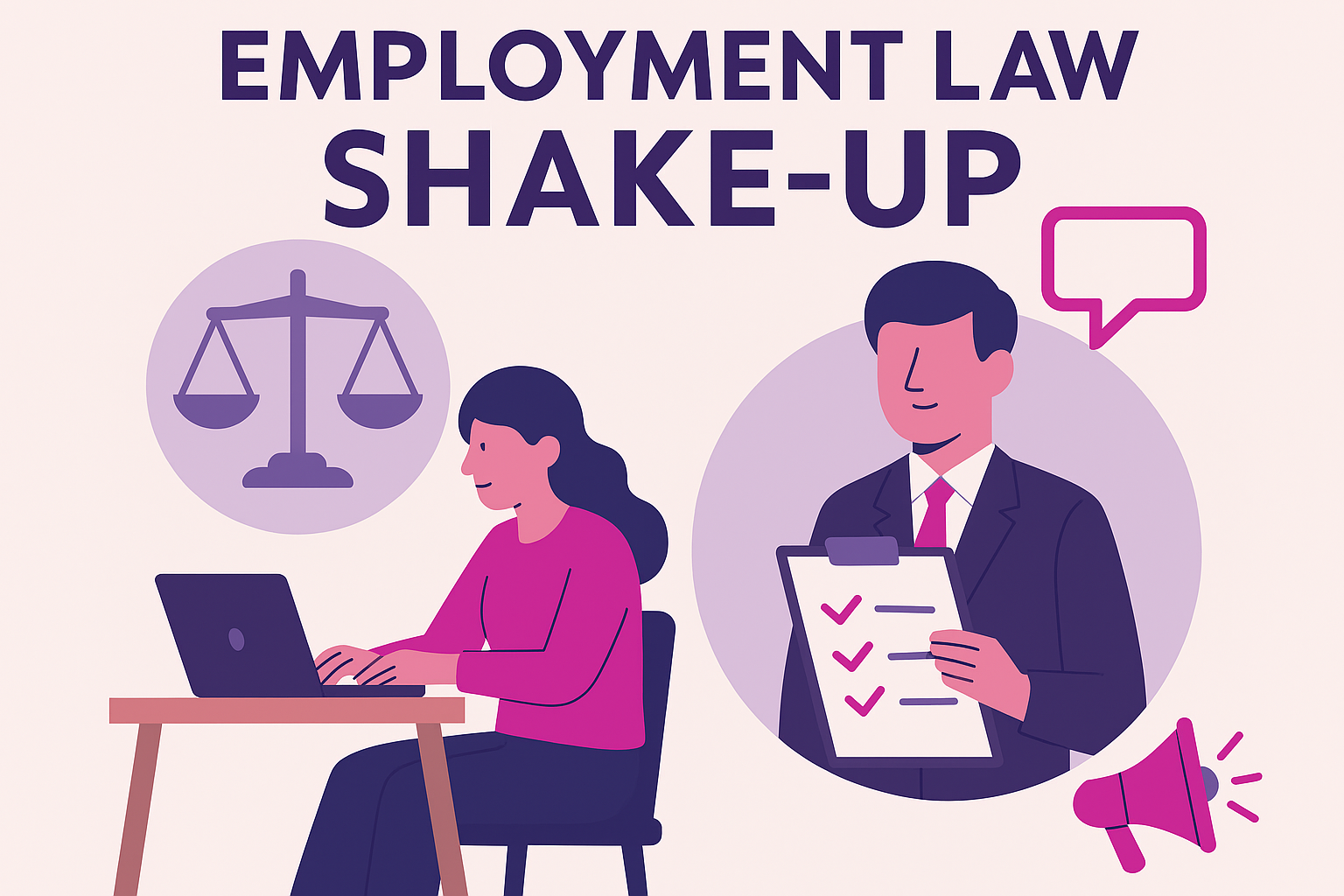Major Shake-Up in Employment Law – What Employers Need to Know about the Employment Relations Amendment Bill 2025

The Government’s long-signalled overhaul of employment law is now taking shape. The Employment Relations Amendment Bill 2025 is progressing through Parliament, with four key reforms that could significantly impact how employers manage their workforce.
1. Contractor Gateway – Locking in Contractor Status
Nicknamed the “Uber law,” this change introduces a new legal test to prevent contractors from later claiming they’re actually employees.
To qualify as a “specified contractor”, five criteria must be met:
- The contract clearly states it’s an independent contractor relationship;
- The contractor can work for others, including competitors;
- There’s no obligation to work fixed hours or accept all tasks;
- No penalties for refusing work outside the agreement;
- The contractor had a real chance to get legal advice before signing.
✅ If all five are met, the contractor cannot challenge their status.
Implications for employers:
- Contracts must be watertight and operational practices must align with the test.
- Give contractors a genuine opportunity to seek advice before signing.
2. Personal Grievances – Tougher Rules, Fewer Remedies
The Bill proposes a rebalancing of the personal grievance (PG) system, including:
- No remedies (e.g. compensation or reinstatement) if the employee’s serious misconduct contributed to dismissal.
- No compensation for humiliation or loss of benefit if the employee contributed in any way to the PG.
- Lost wages can be reduced by up to 100%.
- Procedural defects won’t make a dismissal unjustified unless they caused actual unfairness.
Implications for employers:
- Strengthen definitions of misconduct in policies and agreements.
- Keep detailed records of employee conduct and disciplinary processes.
3. $180,000 PG Threshold – Limiting Claims by High Earners
Employees earning $180,000+ (indexed annually) will no longer be able to bring unjustified dismissal claims, unless they opt in to PG protections.
- Other claims (e.g. discrimination, harassment) remain unaffected.
- Dismissal process obligations (e.g. written reasons) are reduced for high earners who don’t opt in.
Implications for employers:
- Greater flexibility in managing senior exits.
- Expect more negotiation around individual employment agreements (IEAs) for high earners.
- Ensure IEAs clearly cover notice, redundancy, and termination terms.
4. Repeal of the 30-Day Rule – More Flexibility for New Hires
The Bill removes the rule requiring new employees to start on collective agreement (CA) terms for their first 30 days.
Employers must still:
- Provide a copy of the applicable CA,
- Inform new hires about the union and how to contact it.
Implications for employers:
- Update onboarding processes.
- Expect unions to push for similar protections in bargaining.
Next Steps
These changes are not yet law, but they signal a clear direction. Now is the time to:
- Review contractor agreements and engagement practices,
- Update employment agreements and policies,
- Prepare for more strategic bargaining and senior-level negotiations.
Message for Employers
The Employment law space continues to change. Our team of specialists is ready to help with bespoke and practical advice and solutions on navigating the employment law landscape. Please do not hesitate to contact us if you need help.
Disclaimer: We remind you that while this article provides commentary on employment law, health and safety and immigration topics, it should not be used as a substitute for legal or professional advice for specific situations. Please seek legal advice from your lawyer for any questions specific to your workplace.



